Here are my favorite love poems by William Butler Yeats categorized:
- Most famous love poems by William Butler Yeats
- Sorrowful love poems by William Butler Yeats
So if you want the best love poems by William Butler Yeats, then you’re in the right place.
Let’s get into it!
- 53 Best Poems by John Keats
- 55 Best Poems by William Shakespeare
- 27 Best Poems by Arthur Rimbaud
- 47 Best Poems by Edgar Allan Poe
- 43 Best Poems by Rumi
- 35 Bewitching Love Poems by Rumi
- 21 Sensuous Love Poems by John Keats
- 21 Absorbing Love Poems by Pablo Neruda
- 49 Consuming Love Poems by Shakespeare
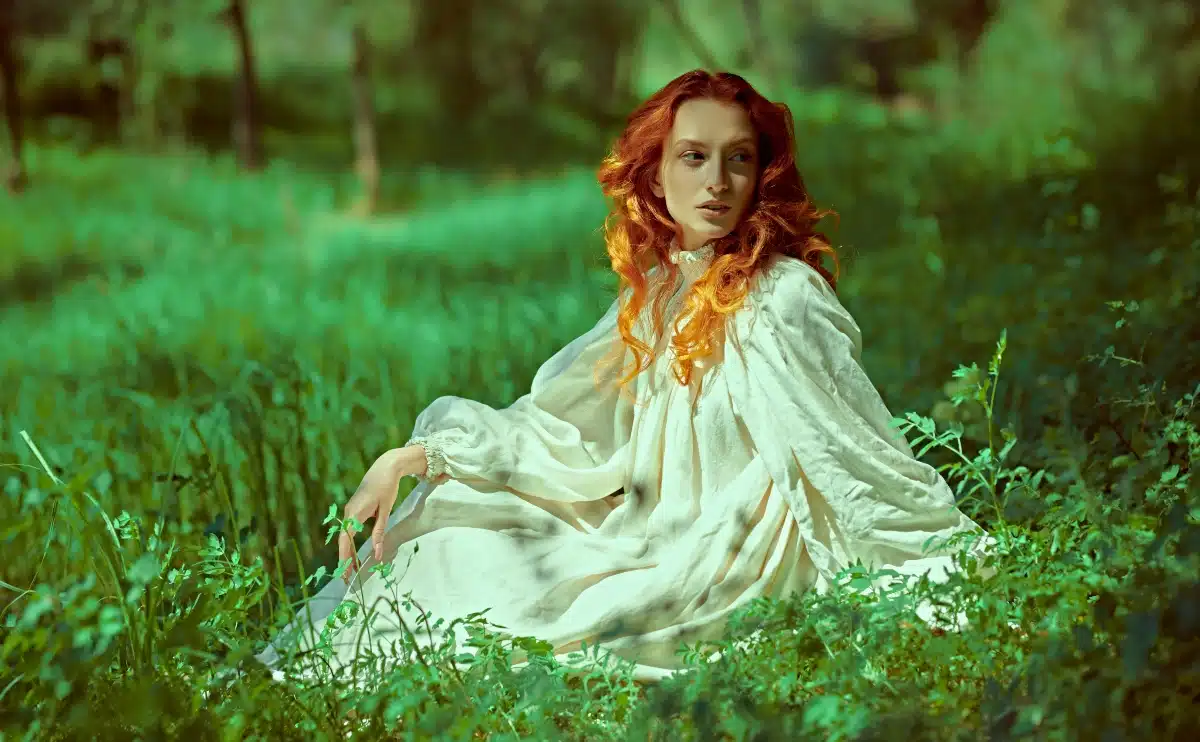
Admirable Love Poems by William Butler Yeats
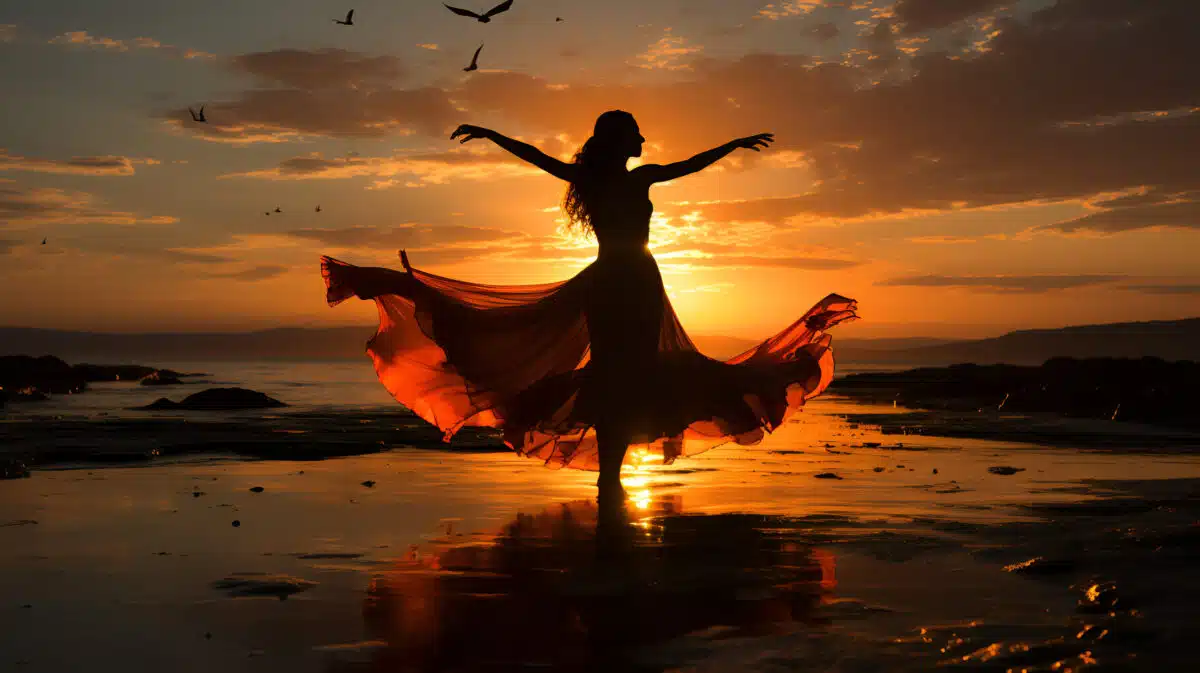
Rediscover the extraordinary feeling of bring in love through the eyes of the legendary wordsmith, William Butler Yeats.
We’ve got a wide spectrum of poems that unveil the crown jewels of Yeats’ poetic legacy—the most famous love poems that have enraptured hearts for generations.
Dive into Yeats’ collection of sorrowful love poems that echo the complexities and heartbreaks of romantic relationships that will hit your soft spot.
So, spare a moment to explore and appreciate the beauty and profundity of words that have left an indelible mark on the canvas of literature!
Ready to fall in love all over again?
Let’s jump right in!
My #1 Favorite Love Poem by William Butler Yeats
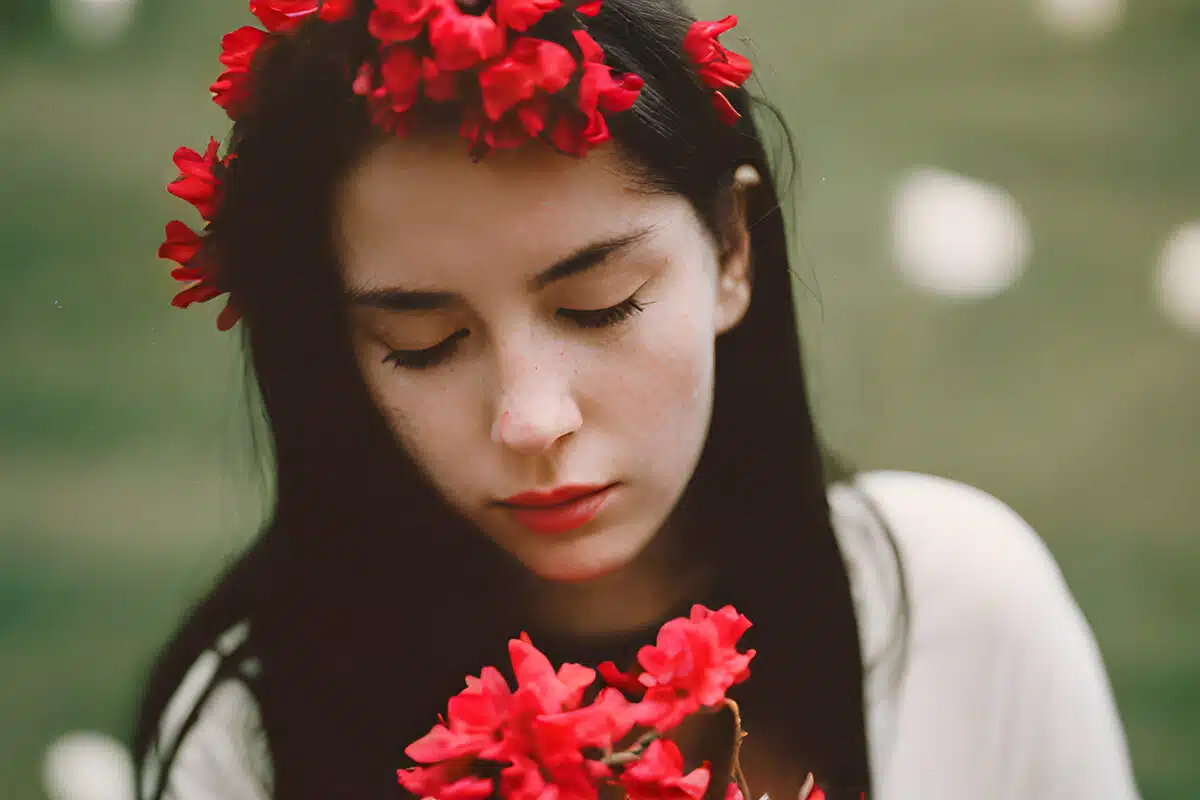
“A Poet To His Beloved” by William Butler Yeats
I Bring you with reverent hands
The books of my numberless dreams,
White woman that passion has worn
As the tide wears the dove-grey sands,
And with heart more old than the horn
That is brimmed from the pale fire of time:
White woman with numberless dreams,
I bring you my passionate rhyme.
Most Famous Love Poems William Butler Yeats
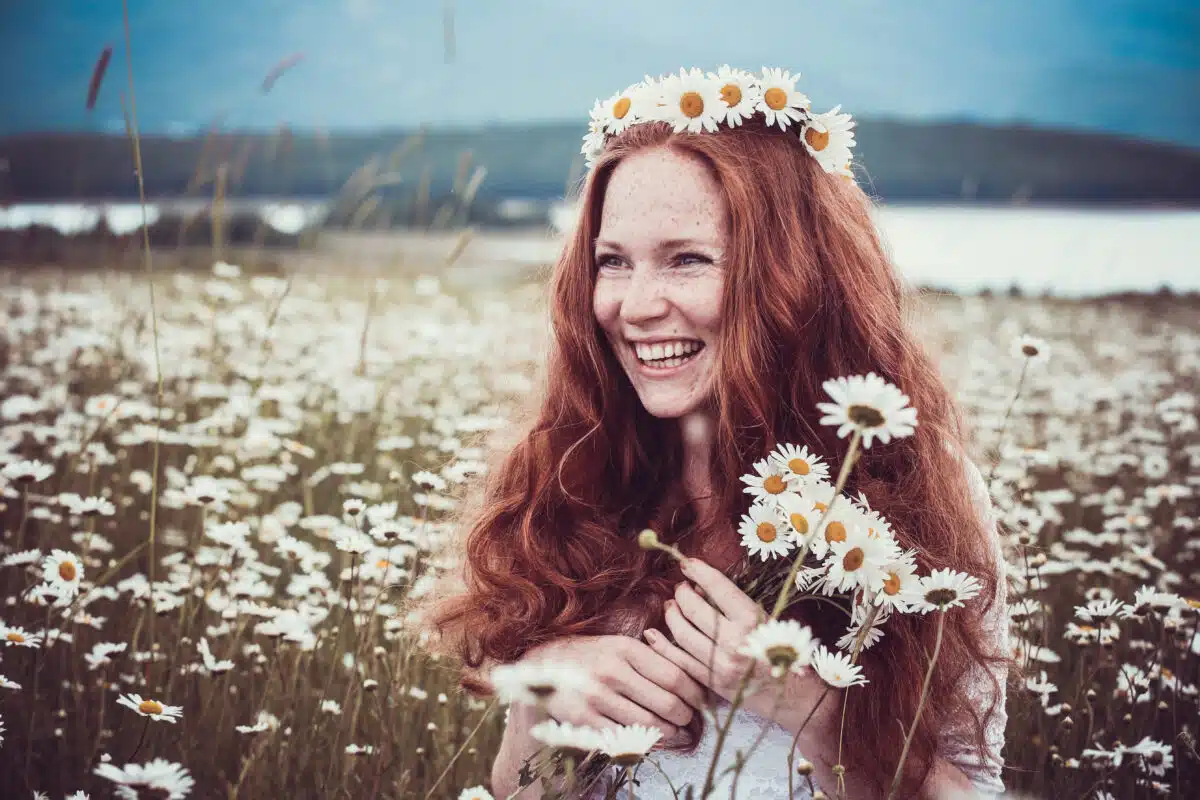
“Aedh Tells Of The Rose In His Heart” by William Butler Yeats
All things uncomely and broken, all things worn out and old,
The cry of a child by the roadway, the creak of a lumbering cart,
The heavy steps of the ploughman, splashing the wintry mould,
Are wronging your image that blossoms a rose in the deeps of my heart.
The wrong of unshapely things is a wrong too great to be told;
I hunger to build them anew and sit on a green knoll apart,
With the earth and the sky and the water, remade, like a casket of gold
For my dreams of your image that blossoms a rose in the deeps of my heart.
“The Pity Of Love” by William Butler Yeats
A pity beyond all telling
Is hid in the heart of love:
The folk who are buying and selling
The clouds on their journey above
The cold wet winds ever blowing
And the shadowy hazel grove
Where mouse-gray waters are flowing
Threaten the head that I love.
“Aedh Laments the Loss Of Love” by William Butler Yeats
Pale brows, still hands and dim hair,
I had a beautiful friend
And dreamed that the old despair
Would end in love in the end:
She looked in my heart one day
And saw your image was there;
She has gone weeping away.
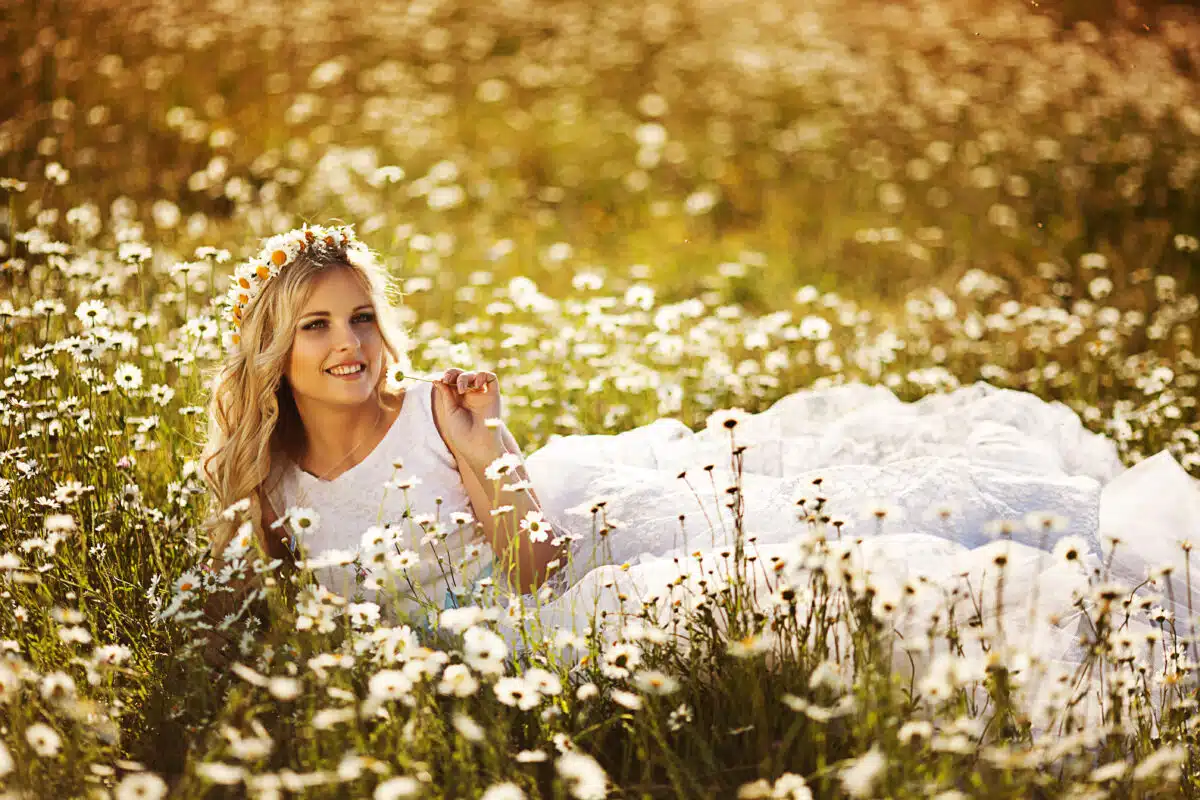
“Aedh Give His Beloved Certain Rhymes” by William Butler Yeats
Fasten your hair with a golden pin,
And bind up every wandering tress;
I bade my heart build these poor rhymes:
It worked at them, day out, day in,
Building a sorrowful loveliness
Out of the battles of old times.
You need but lift a pearl-pale hand,
And bind up your long hair and sigh;
And all men’s hearts must burn and beat;
And candle-like foam on the dim sand,
And stars climbing the dew-dropping sky,
Live but to light your passing feet.
“When You Are Old” by William Butler Yeats
When you are old and gray and full of sleep,
And nodding by the fire, take down this book,
And slowly read, and dream of the soft look
Your eyes had once, and of their shadows deep;
How many loved your moments of glad grace,
And loved your beauty will love false or true;
But one man loved the pilgrim soul in you,
And loved the sorrows of your changing face.
And bending down beside the glowing bars
Murmur, a little sadly, how love fled
And paced upon the mountains overhead
And hid his face amid a crowd of stars.
“Aedh Tells Of The Perfect Beauty” by William Butler Yeats
O cloud-pale eyelids, dream-dimmed eyes
The poets labouring all their days
To build a perfect beauty in rhyme
Are overthrown by a woman’s gaze
And by the unlabouring brood of the skies:
And therefore my heart will bow, when dew
Is dropping sleep, until God burn time,
Before the unlabouring stars and you.
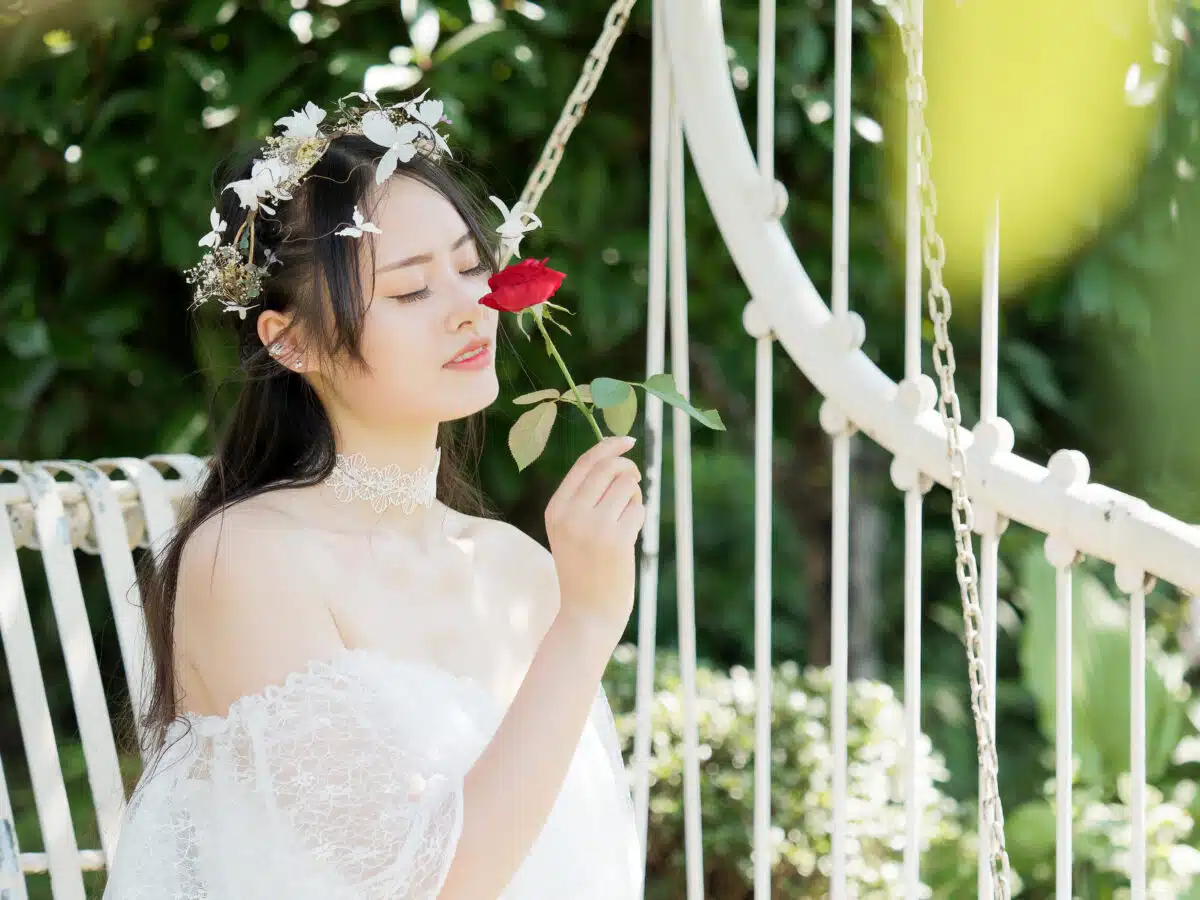
“The Rose Of The World” by William Butler Yeats
Who dreamed that beauty passes like a dream?
For these red lips, with all their mournful pride,
Mournful that no new wonder may betide,
Troy passed away in one high funeral gleam,
And Usna’s children died.
We and the labouring world are passing by:
Amid men’s souls, that waver and give place,
Like the pale waters in their wintry race,
Under the passing stars, foam of the sky,
Lives on this lonely face.
Bow down, archangels, in your dim abode:
Before you were, or any hearts to beat,
Weary and kind one lingered by His seat;
He made the world to be a grassy road
Before her wandering feet.
“Aedh Wishes For The Cloths of Heaven” by William Butler Yeats
Had I the heavens’ embroidered cloths,
Enwrought with golden and silver light,
The blue and the dim and the dark cloths
Of night and light and the half light,
I would spread the cloths under your feet:
But I, being poor, have only my dreams;
I have spread my dreams under your feet;
Tread softly because you tread on my dreams.
“He Remembers Forgotten Beauty” by William Butler Yeats
When my arms wrap you round I press
My heart upon the loveliness
That has long faded from the world;
The jewelled crowns that kings have hurled
In shadowy pools, when armies fled;
The love-tales wrought with silken thread
By dreaming ladies upon cloth
That has made fat the murderous moth;
The roses that of old time were
Woven by ladies in their hair,
The dew-cold lilies ladies bore
Through many a sacred corridor
Where such grey clouds of incense rose
That only God’s eyes did not close:
For that pale breast and lingering hand
Come from a more dream-heavy land,
A more dream-heavy hour than this;
And when you sigh from kiss to kiss
I hear white Beauty sighing, too,
For hours when all must fade like dew.
But flame on flame, and deep on deep,
Throne over throne where in half sleep,
Their swords upon their iron knees,
Brood her high lonely mysteries.
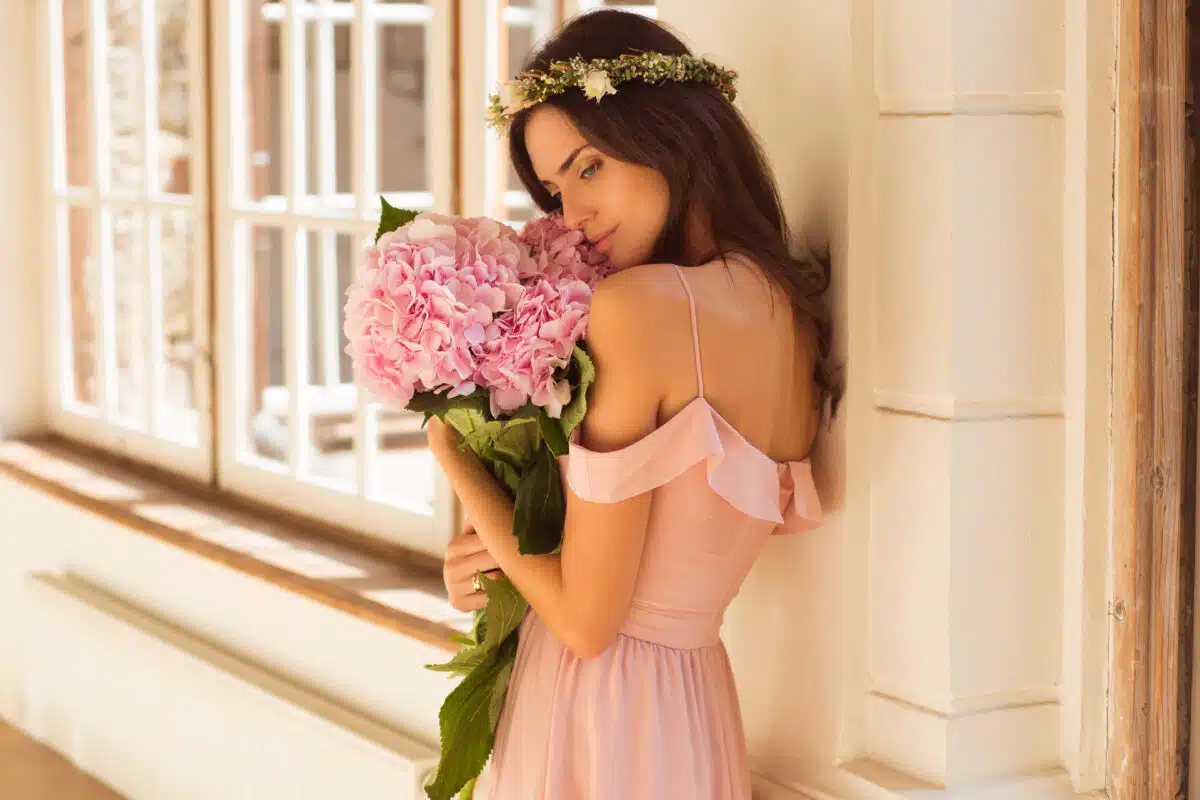
“The Lover Asks Forgiveness Because Of His Many Moods” by William Butler Yeats
If this importunate heart trouble your peace
With words lighter than air,
Or hopes that in mere hoping flicker and cease;
Crumple the rose in your hair;
And cover your lips with odorous twilight and say,
“O Hearts of wind-blown flame!
O Winds, older than changing of night and day,
That murmuring and longing came
From marble cities loud with tabors of old
In dove-grey faery lands;
From battle-banners, fold upon purple fold,
Queens wrought with glimmering hands;
That saw young Niamh hover with love-lorn face
Above the wandering tide;
And lingered in the hidden desolate place
Where the last Phoenix died,
And wrapped the flames above his holy head;
And still murmur and long:
O piteous Hearts, changing till change be dead
In a tumultuous song’:
And cover the pale blossoms of your breast
With your dim heavy hair,
And trouble with a sigh for all things longing for rest
The odorous twilight there.
“He Bids His Beloved Be At Peace” by William Butler Yeats
I hear the Shadowy Horses, their long manes a-shake,
Their hoofs heavy with tumult, their eyes glimmering
white;
The North unfolds above them clinging, creeping
night,
The East her hidden joy before the morning break,
The West weeps in pale dew and sighs passing away,
The South is pouring down roses of crimson fire:
O vanity of Sleep, Hope, Dream, endless Desire,
The Horses of Disaster plunge in the heavy clay:
Beloved, let your eyes half close, and your heart beat
Over my heart, and your hair fall over my breast,
Drowning love’s lonely hour in deep twilight of rest,
And hiding their tossing manes and their tumultuous
feet.
“He Reproves The Curlew” by William Butler Yeats
O Curlew, cry no more in the air,
Or only to the water in the West;
Because your crying brings to my mind
passion-dimmed eyes and long heavy hair
That was shaken out over my breast:
There is enough evil in the crying of wind.
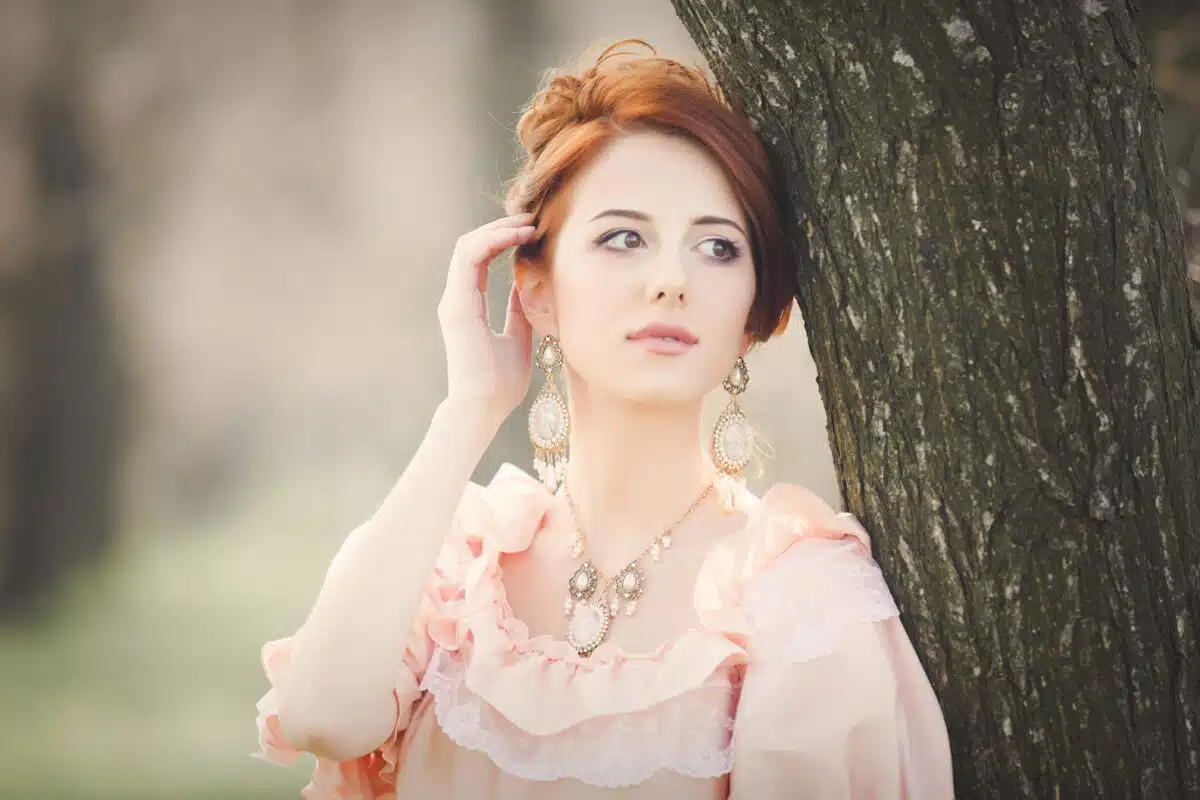
“The Travail Of Passion” by William Butler Yeats
When the flaming lute-thronged angelic door is wide;
When an immortal passion breathes in mortal clay;
Our hearts endure the scourge, the plaited thorns, the way
Crowded with bitter faces, the wounds in palm and side,
The hyssop-heavy sponge, the flowers by Kidron stream:
We will bend down and loosen our hair over you,
That it may drop faint perfume, and be heavy with dew,
Lilies of death-pale hope, roses of passionate dream.
“The Lover Pleads With His Friend For Old Friends” by William Butler Yeats
Though you are in your shining days,
Voices among the crowd
And new friends busy with your praise,
Be not unkind or proud,
But think about old friends the most:
Time’s bitter flood will rise,
Your beauty perish and be lost
For all eyes but these eyes.
“The Folly Of Being Comforted” by William Butler Yeats
One that is ever kind said yesterday:
“Your well-beloved’s hair has threads of grey,
And little shadows come about her eyes;
Time can but make it easier to be wise
Though now it seems impossible, and so
All that you need is patience.”
Heart cries, “No,
I have not a crumb of comfort, not a grain.
Time can but make her beauty over again:
Because of that great nobleness of hers
The fire that stirs about her, when she stirs,
Burns but more clearly. O she had not these ways
When all the wild Summer was in her gaze.”
Heart! O heart! if she’d but turn her head,
You’d know the folly of being comforted.
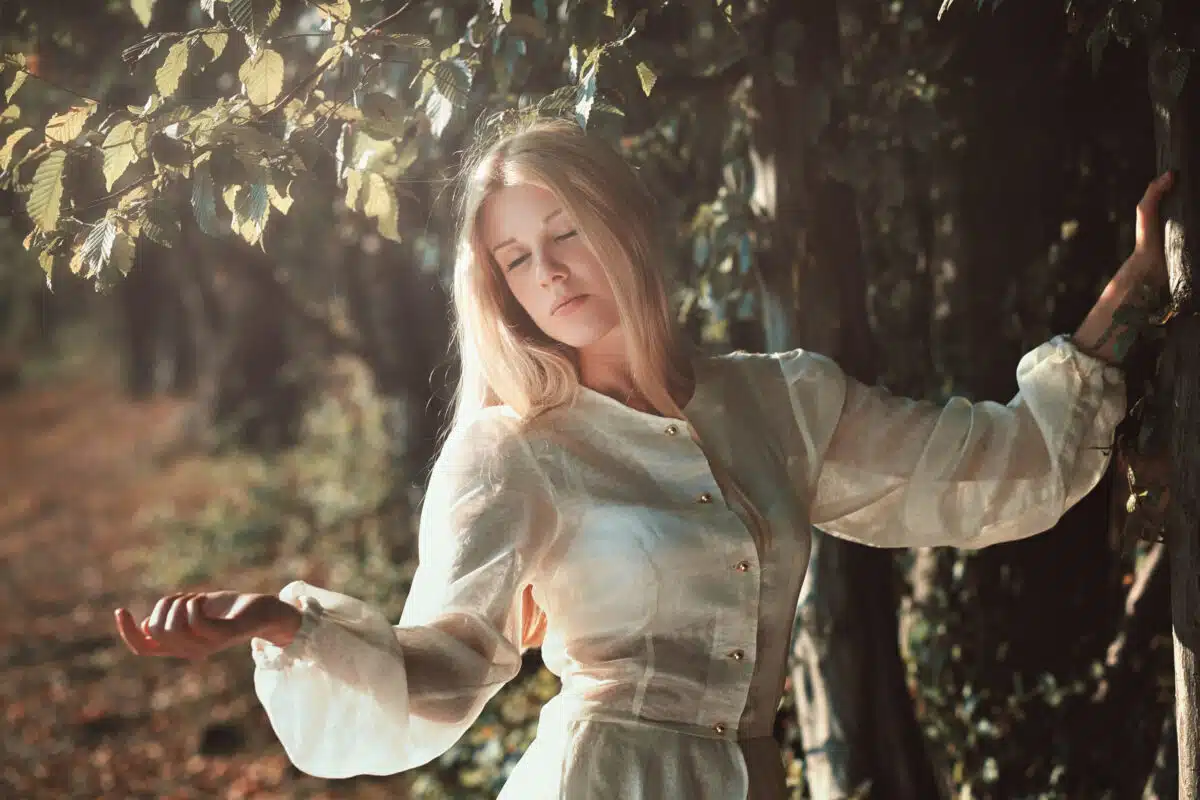
“Old Memory” by William Butler Yeats
O thought, fly to her when the end of day
Awakens an old memory, and say,
“Your strength, that is so lofty and fierce and kind,
It might call up a new age, calling to mind
The queens that were imagined long ago,
Is but half yours: he kneaded in the dough
Through the long years of youth, and who would have thought
It all, and more than it all, would come to naught,
And that dear words meant nothing?” But enough,
For when we have blamed the wind we can blame love;
Or, if there needs be more, be nothing said
That would be harsh for children that have strayed.
“Against Unworthy Praise” by William Butler Yeats
O Heart, be at peace, because
Nor knave nor dolt can break
What’s not for their applause,
Being for a woman’s sake.
Enough if the work has seemed,
So did she your strength renew,
A dream that a lion had dreamed
Till the wilderness cried aloud,
A secret between you two,
Between the proud and the proud.
What, still you would have their praise!
But here’s a haughtier text,
The labyrinth of her days
That her own strangeness perplexed;
And how what her dreaming gave
Earned slander, ingratitude,
From self-same dolt and knave;
Aye, and worse wrong than these.
Yet she, singing upon her road,
Half lion, half child, is at peace.
“The Mask” by William Butler Yeats
“Put off that mask of burning gold
With emerald eyes.”
“O no, my dear, you make so bold
To find if hearts be wild and wise,
And yet not cold.”
“I would but find what’s there to find,
Love or deceit.”
“It was the mask engaged your mind,
And after set your heart to beat,
Not what’s behind.”
“But lest you are my enemy,
I must enquire.”
“O no, my dear, let all that be;
What matter, so there is but fire
In you, in me?”
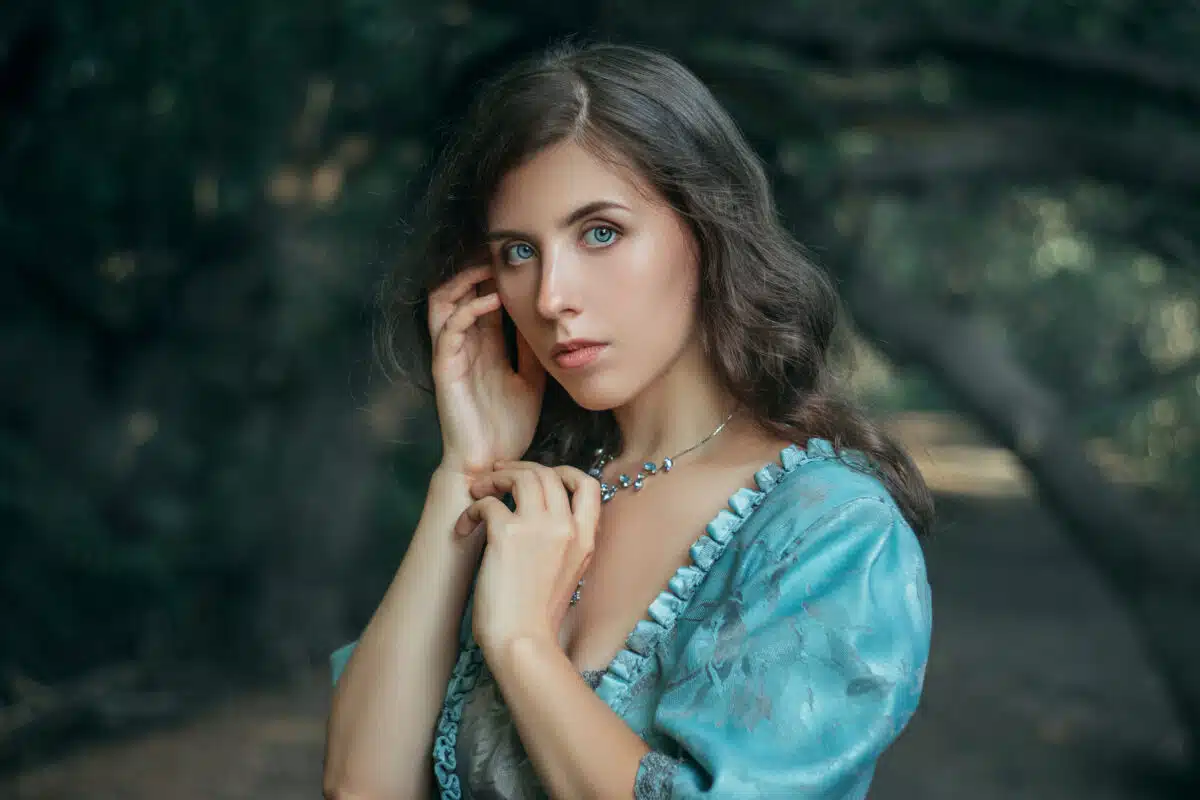
“A Woman Homer Sung” by William Butler Yeats
If any man drew near
When I was young,
I thought, “He holds her dear,’
And shook with hate and fear.
But O! ’twas bitter wrong
If he could pass her by
With an indifferent eye.
Whereon I wrote and wrought,
And now, being grey,
I dream that I have brought
To such a pitch my thought
That coming time can say,
“He shadowed in a glass
What thing her body was.’
For she had fiery blood
When I was young,
And trod so sweetly proud
As ’twere upon a cloud,
A woman Homer sung,
That life and letters seem
But an heroic dream.
“The Consolation” by William Butler Yeats
I Had this thought awhile ago,
‘My darling cannot understand
What I have done, or what would do
In this blind bitter land.’
And I grew weary of the sun
Until my thoughts cleared up again,
Remembering that the best I have done
Was done to make it plain;
That every year I have cried, ‘At length
My darling understands it all,
Because I have come into my strength,
And words obey my call.’
That had she done so who can say
What would have shaken from the sieve?
I might have thrown poor words away
And been content to live.
“Peace” by William Butler Yeats
Ah, that Time could touch a form
That could show what Homer’s age
Bred to be a hero’s wage.
“Were not all her life but storm,
Would not painters paint a form
Of such noble lines” I said,
“Such a delicate high head,
All that sternness amid charm,
All that sweetness amid strength?”
Ah, but peace that comes at length,
Came when Time had touched her form.
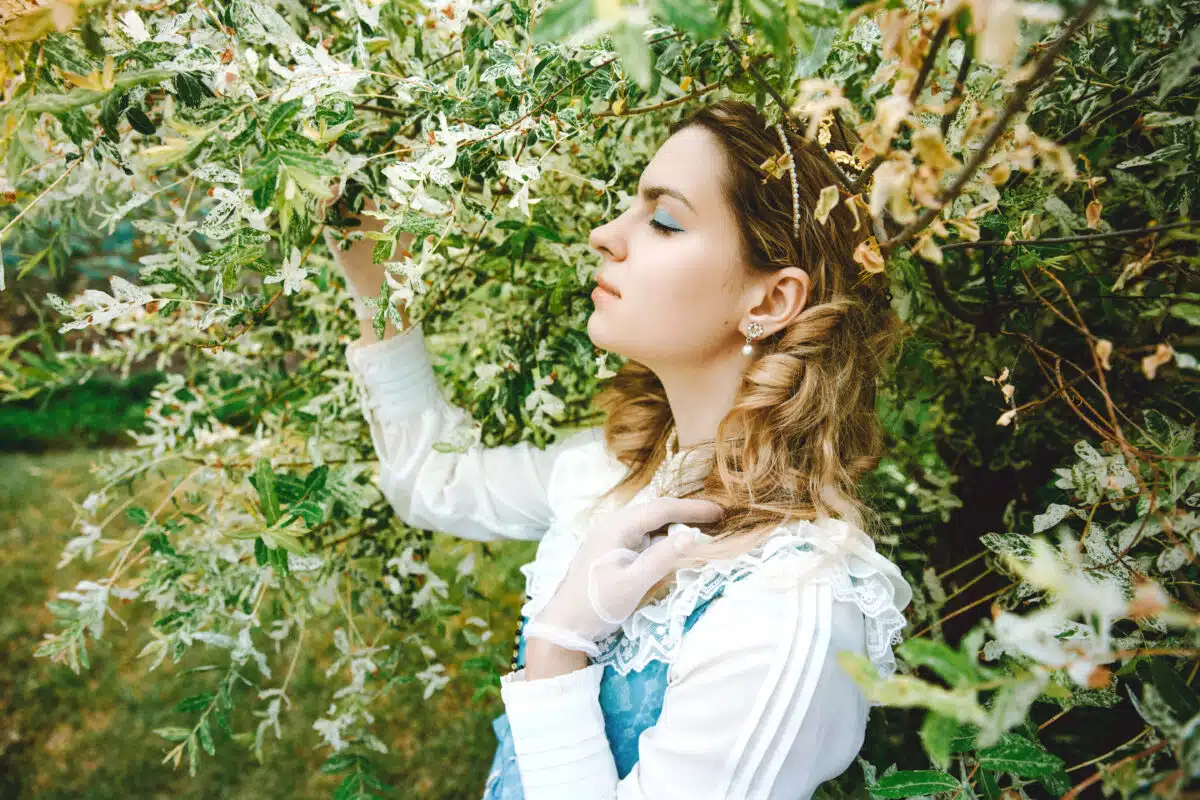
“O Do Not Love Too Long” by William Butler Yeats
Sweetheart, do not love too long:
I loved long and long,
And grew to be out of fashion
Like an old song.
All through the years of our youth
Neither could have known
Their own thought from the other’s,
We were so much at one.
But O, in a minute she changed —
O do not love too long,
Or you will grow out of fashion
Like an old song.
“Reconciliation” by William Butler Yeats
Some may have blamed you that you took away
The verses that could move them on the day
When, the ears being deafened, the sight of the eyes blind
With lightning you went from me, and I could find
Nothing to make a song about but kings,
Helmets, and swords, and half-forgotten things
That were like memories of you, but now
We’ll out, for the world lives as long ago;
And while we’re in our laughing, weeping fit,
Hurl helmets, crowns, and swords into the pit.
But, dear, cling close to me; since you were gone,
My barren thoughts have chilled me to the bone.
“The Indian To His Love” by William Butler Yeats
The island dreams under the dawn
And great boughs drop tranquillity;
The peahens dance on a smooth lawn,
A parrot sways upon a tree,
Raging at his own image in the enamelled sea.
Here we will moor our lonely ship
And wander ever with woven hands,
Murmuring softly lip to lip,
Along the grass, along the sands,
Murmuring how far away are the unquiet lands:
How we alone of mortals are
Hid under quiet boughs apart,
While our love grows an Indian star,
A meteor of the burning heart,
One with the tide that gleams, the wings that gleam
and dart,
The heavy boughs, the burnished dove
That moans and sighs a hundred days:
How when we die our shades will rove,
When eve has hushed the feathered ways,
With vapoury footsole by the water’s drowsy blaze.
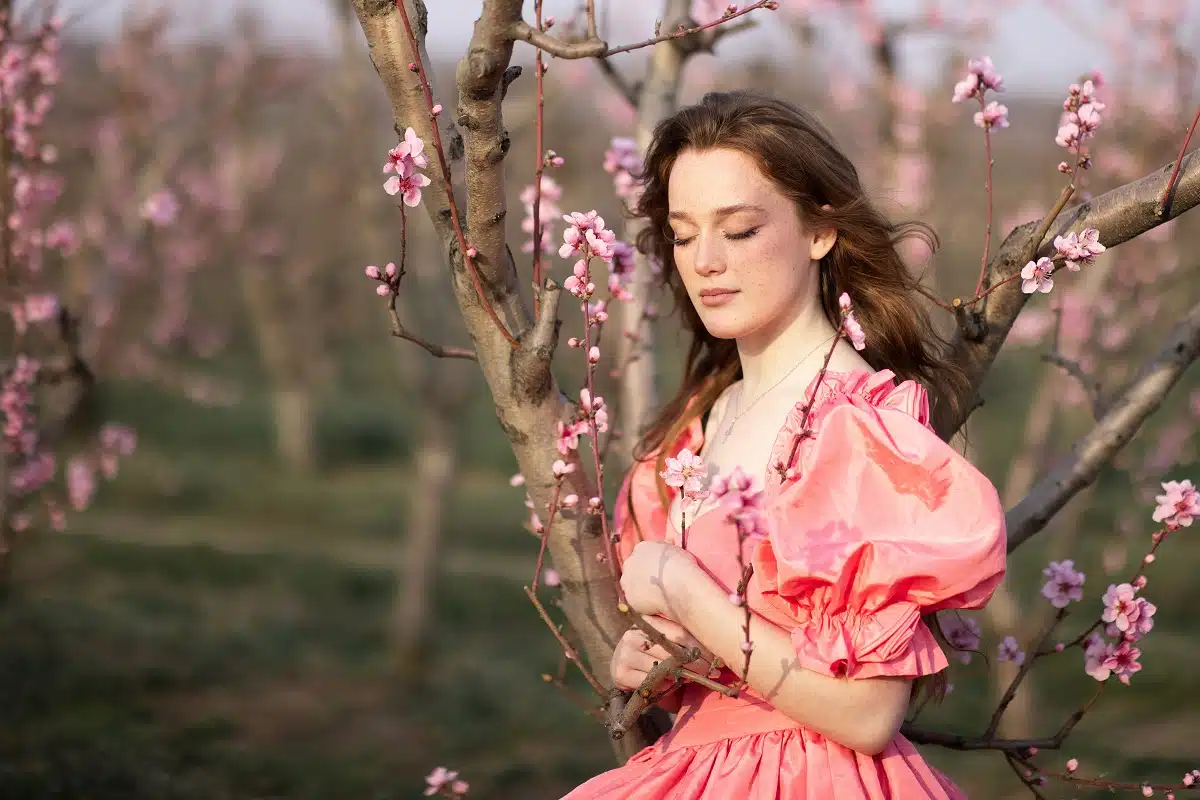
“Never Give All the Heart” by William Butler Yeats
Never give all the heart, for love
Will hardly seem worth thinking of
To passionate women if it seem
Certain, and they never dream
That it fades out from kiss to kiss;
For everything that’s lovely is
But a brief, dreamy, kind delight.
O never give the heart outright,
For they, for all smooth lips can say,
Have given their hearts up to the play.
And who could play it well enough
If deaf and dumb and blind with love?
He that made this knows all the cost,
For he gave all his heart and lost.
“Solomon To Sheba” by William Butler Yeats
Sang Solomon to Sheba,
And kissed her dusky face,
‘All day long from mid-day
We have talked in the one place,
All day long from shadowless noon
We have gone round and round
In the narrow theme of love
Like an old horse in a pound.’
To Solomon sang Sheba,
Planted on his knees,
‘If you had broached a matter
That might the learned please,
You had before the sun had thrown
Our shadows on the ground
Discovered that my thoughts, not it,
Are but a narrow pound.’
Said Solomon to Sheba,
And kissed her Arab eyes,
‘There’s not a man or woman
Born under the skies
Dare match in learning with us two,
And all day long we have found
There’s not a thing but love can make
The world a narrow pound.’
Sorrowful Love Poems by Yeats
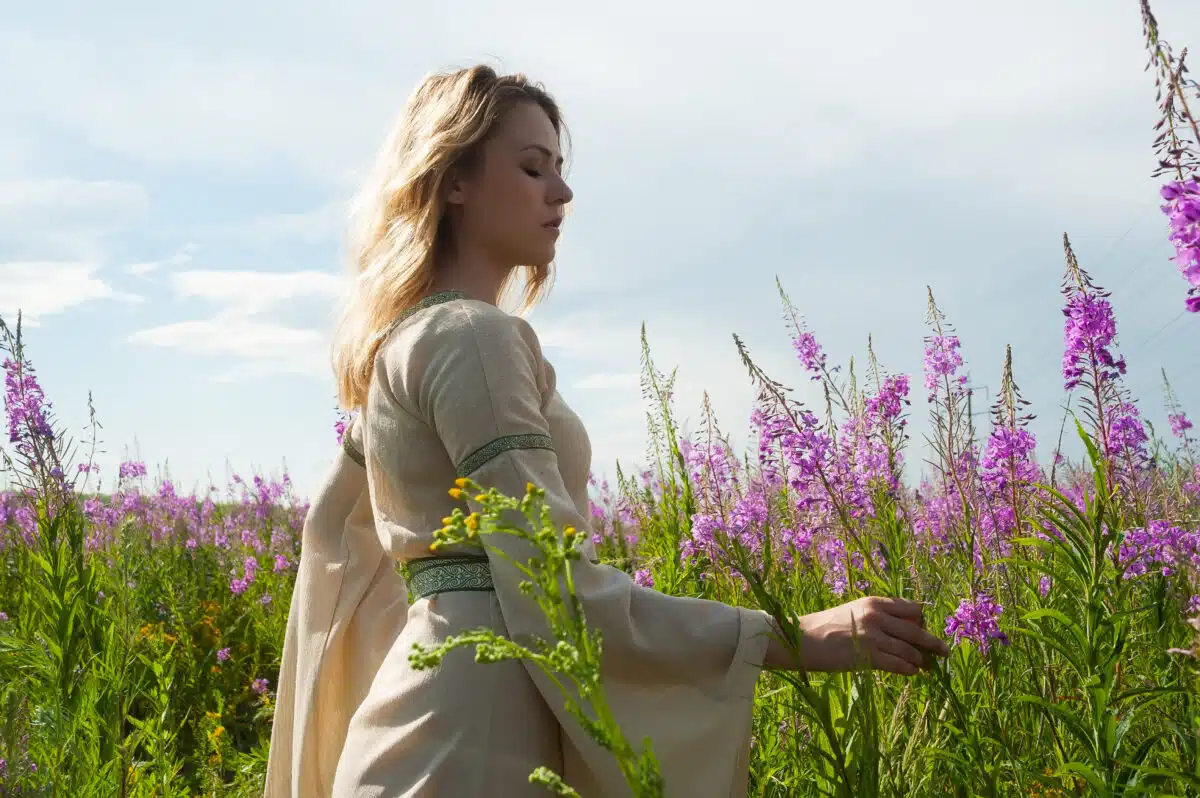
“No Second Troy” by William Butler Yeats
Why should I blame her that she filled my days
With misery, or that she would of late
Have taught to ignorant men most violent ways,
Or hurled the little streets upon the great,
Had they but courage equal to desire?
What could have made her peaceful with a mind
That nobleness made simple as a fire,
With beauty like a tightened bow, a kind
That is not natural in an age like this,
Being high and solitary and most stern?
Why, what could she have done being what she is?
Was there another Troy for her to burn?
“Aedh Tells of a Valley Full Of Lovers” by William Butler Yeats
I dreamed that I stood in a valley, and amid sighs,
For happy lovers passed two by two where I stood;
And I dreamed my lost love came stealthily out of the wood
With her cloud-pale eyelids falling on dream-dimmed eyes:
I cried in my dream ‘O women bid the young men lay
‘Their heads on your knees, and drown their eyes with your hair,
‘Or remembering hers they will find no other face fair
‘Till all the valleys of the world have been withered away.’
“The Rose of Battle” by William Butler Yeats
Rose of all Roses, Rose of all the World!
The tall thought-woven sails, that flap unfurled
Above the tide of hours, trouble the air,
And God’s bell buoyed to be the water’s care;
While hushed from fear, or loud with hope, a band
With blown, spray-dabbled hair gather at hand.
Turn if you may from battles never done,
I call, as they go by me one by one,
Danger no refuge holds; and war no peace,
For him who hears love sing and never cease,
Beside her clean-swept hearth, her quiet shade:
But gather all for whom no love hath made
A woven silence, or but came to cast
A song into the air, and singing past
To smile on the pale dawn; and gather you
Who have sought more than is in rain or dew
Or in the sun and moon, or on the earth,
Or sighs amid the wandering, starry mirth,
Or comes in laughter from the sea’s sad lips
And wage God’s battles in the long gray ships.
The sad, the lonely, the insatiable,
To these Old Night shall all her mystery tell;
God’s bell has claimed them by the little cry
Of their sad hearts, that may not live nor die.
Rose of all Roses, Rose of all the World!
You, too, have come where the dim tides are hurled
Upon the wharves of sorrow, and heard ring
The bell that calls us on; the sweet far thing.
Beauty grown sad with its eternity
Made you of us, and of the dim gray sea.
Our long ships loose thought-woven sails and wait,
For God has bid them share an equal fate;
And when at last defeated in His wars,
They have gone down under the same white stars,
We shall no longer hear the little cry
Of our sad hearts, that may not live nor die.
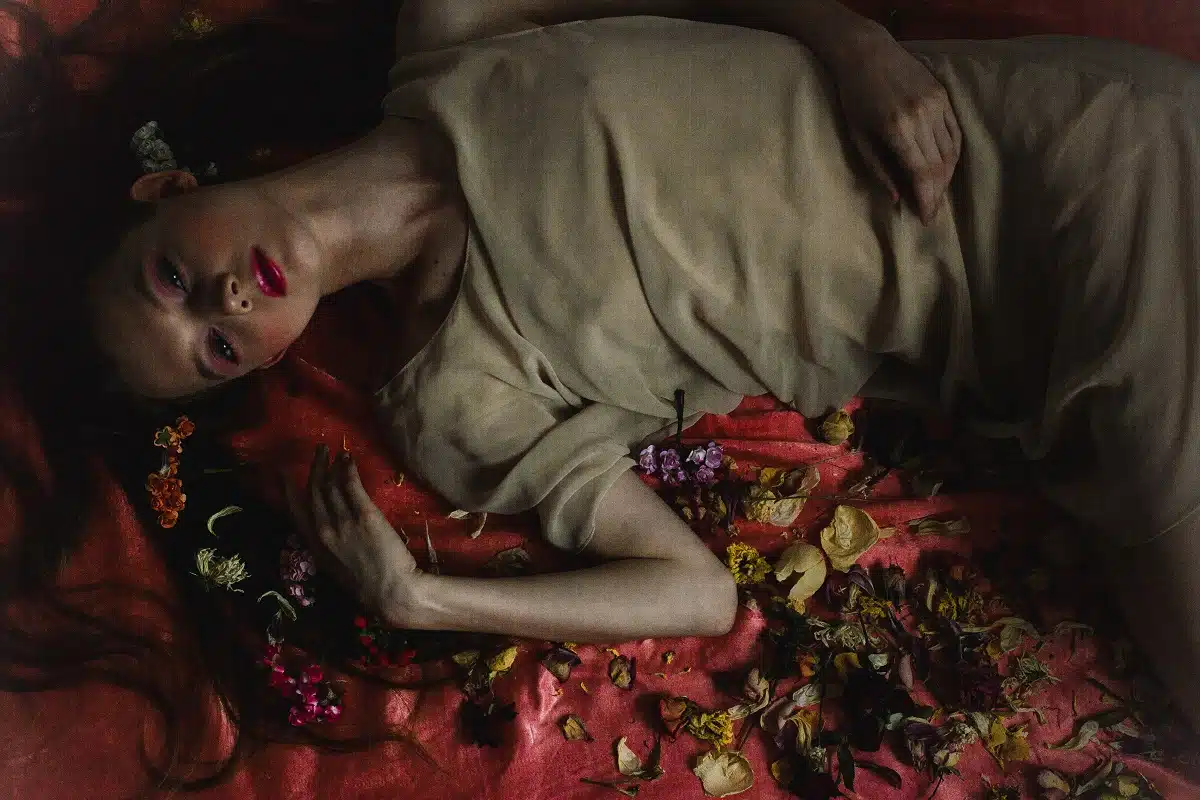
“Aedh Wishes His Beloved Were Dead” by William Butler Yeats
Were you but lying cold and dead,
And lights were paling out of the West,
You would come hither, and bend your head,
And I would lay my head on your breast;
And you would murmur tender words,
Forgiving me, because you were dead:
Nor would you rise and hasten away,
Though you have the will of the wild birds,
But know your hair was bound and wound
About the stars and moon and sun:
O would beloved that you lay
Under the dock-leaves in the ground,
While lights were paling one by one.
“He Mourns For The Change That Has Come Upon Him And His Beloved” by William Butler Yeats
Do you not hear me calling, white deer with no horns?
I have been changed to a hound with one red ear;
I have been in the Path of Stones and the Wood of Thorns,
For somebody hid hatred and hope and desire and fear
Under my feet that they follow you night and day.
A man with a hazel wand came without sound;
He changed me suddenly; I was looking another way;
And now my calling is but the calling of a hound;
And Time and Birth and Change are hurrying by.
I would that the Boar without bristles had come from the West
And had rooted the sun and moon and stars out of the sky
And lay in the darkness, grunting, and turning to his rest.
“Ribb At The Tomb Of Baile And Aillinn” by William Butler Yeats
Because you have found me in the pitch-dark night
With open book you ask me what I do.
Mark and digest my tale, carry it afar
To those that never saw this tonsured head
Nor heard this voice that ninety years have cracked.
Of Baile and Aillinn you need not speak,
All know their tale, all know what leaf and twig,
What juncture of the apple and the yew,
Surmount their bones; but speak what none ha’ve
heard.
The miracle that gave them such a death
Transfigured to pure substance what had once
Been bone and sinew; when such bodies join
There is no touching here, nor touching there,
Nor straining joy, but whole is joined to whole;
For the intercourse of angels is a light
Where for its moment both seem lost, consumed.
Here in the pitch-dark atmosphere above
The trembling of the apple and the yew,
Here on the anniversary of their death,
The anniversary of their first embrace,
Those lovers, purified by tragedy,
Hurry into each other’s arms; these eyes,
By water, herb and solitary prayer
Made aquiline, are open to that light.
Though somewhat broken by the leaves, that light
Lies in a circle on the grass; therein
I turn the pages of my holy book.
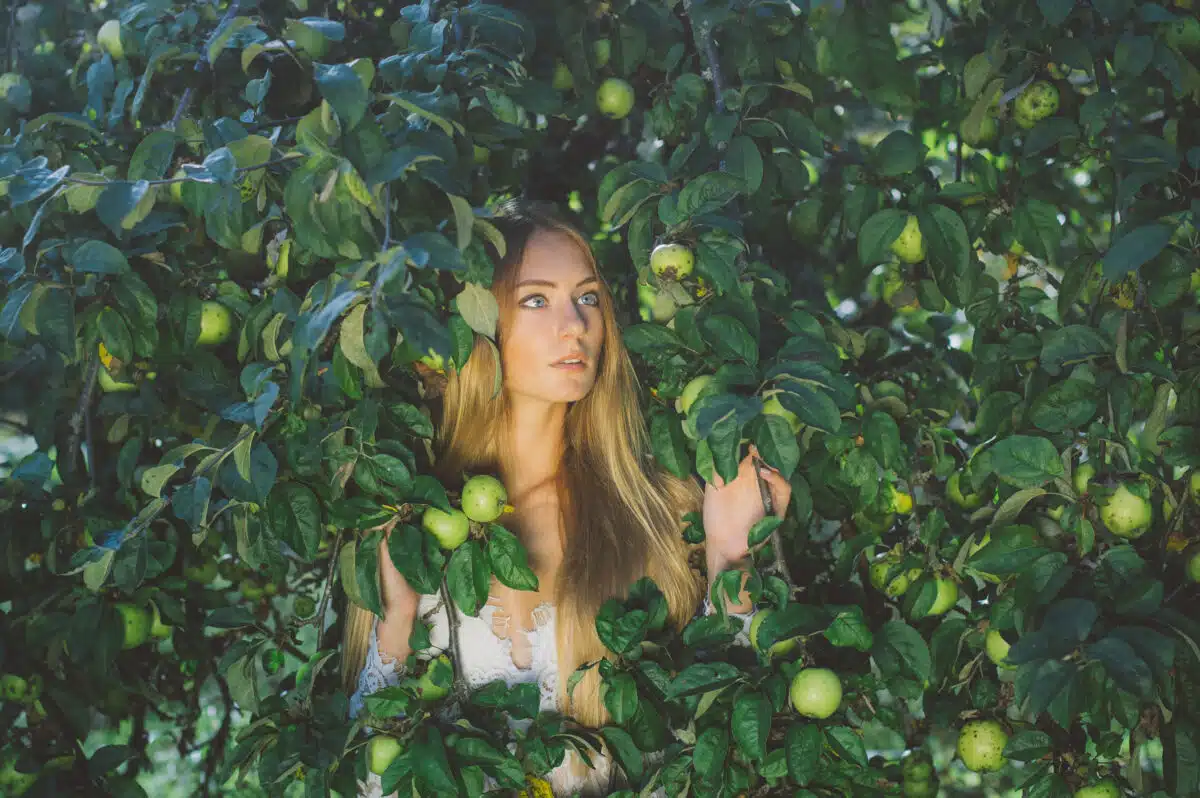
“Adam’s Curse” by William Butler Yeats
We sat together at one summer’s end,
That beautiful mild woman, your close friend,
And you and I, and talked of poetry.
I said, “A line will take us hours maybe;
Yet if it does not seem a moment’s thought,
Our stitching and unstitching has been naught.
Better go down upon your marrow-bones
And scrub a kitchen pavement, or break stones
Like an old pauper, in all kinds of weather;
For to articulate sweet sounds together
Is to work harder than all these, and yet
Be thought an idler by the noisy set
Of bankers, schoolmasters, and clergymen
The martyrs call the world.’
And thereupon
That beautiful mild woman for whose sake
There’s many a one shall find out all heartache
On finding that her voice is sweet and low
Replied, “To be born woman is to know —
Although they do not talk of it at school —
That we must labour to be beautiful.’
I said, “It’s certain there is no fine thing
Since Adam’s fall but needs much labouring.
There have been lovers who thought love should be
So much compounded of high courtesy
That they would sigh and quote with learned looks
precedents out of beautiful old books;
Yet now it seems an idle trade enough.’
We sat grown quiet at the name of love;
We saw the last embers of daylight die,
And in the trembling blue-green of the sky
A moon, worn as if it had been a shell
Washed by time’s waters as they rose and fell
About the stars and broke in days and years.
I had a thought for no one’s but your ears:
That you were beautiful, and that I strove
To love you in the old high way of love;
That it had all seemed happy, and yet we’d grown
As weary-hearted as that hollow moon.
“Under The Moon” by William Butler Yeats
I have no happiness in dreaming of Brycelinde,
Nor Avalon the grass-green hollow, nor Joyous Isle,
Where one found Lancelot crazed and hid him for a while;
Nor Uladh, when Naoise had thrown a sail upon the wind;
Nor lands that seem too dim to be burdens on the heart:
Land-under-Wave, where out of the moon’s light and the sun’s
Seven old sisters wind the threads of the long-lived ones,
Land-of-the-Tower, where Aengus has thrown the gates apart,
And Wood-of-Wonders, where one kills an ox at dawn,
To find it when night falls laid on a golden bier.
Therein are many queens like Branwen and Guinevere;
And Niamh and Laban and Fand, who could change to an otter or fawn,
And the wood-woman, whose lover was changed to a blue-eyed hawk;
And whether I go in my dreams by woodland, or dun, or shore,
Or on the unpeopled waves with kings to pull at the oar,
I hear the harp-string praise them, or hear their mournful talk.
Because of something told under the famished horn
Of the hunter’s moon, that hung between the night and the day,
To dream of women whose beauty was folded in dis may,
Even in an old story, is a burden not to be borne.
“A Last Confession” by William Butler Yeats
What lively lad most pleasured me
Of all that with me lay?
I answer that I gave my soul
And loved in misery,
But had great pleasure with a lad
That I loved bodily.
Flinging from his arms I laughed
To think his passion such
He fancied that I gave a soul
Did but our bodies touch,
And laughed upon his breast to think
Beast gave beast as much.
I gave what other women gave
That stepped out of their clothes.
But when this soul, its body off,
Naked to naked goes,
He it has found shall find therein
What none other knows,
And give his own and take his own
And rule in his own right;
And though it loved in misery
Close and cling so tight,
There’s not a bird of day that dare
Extinguish that delight.
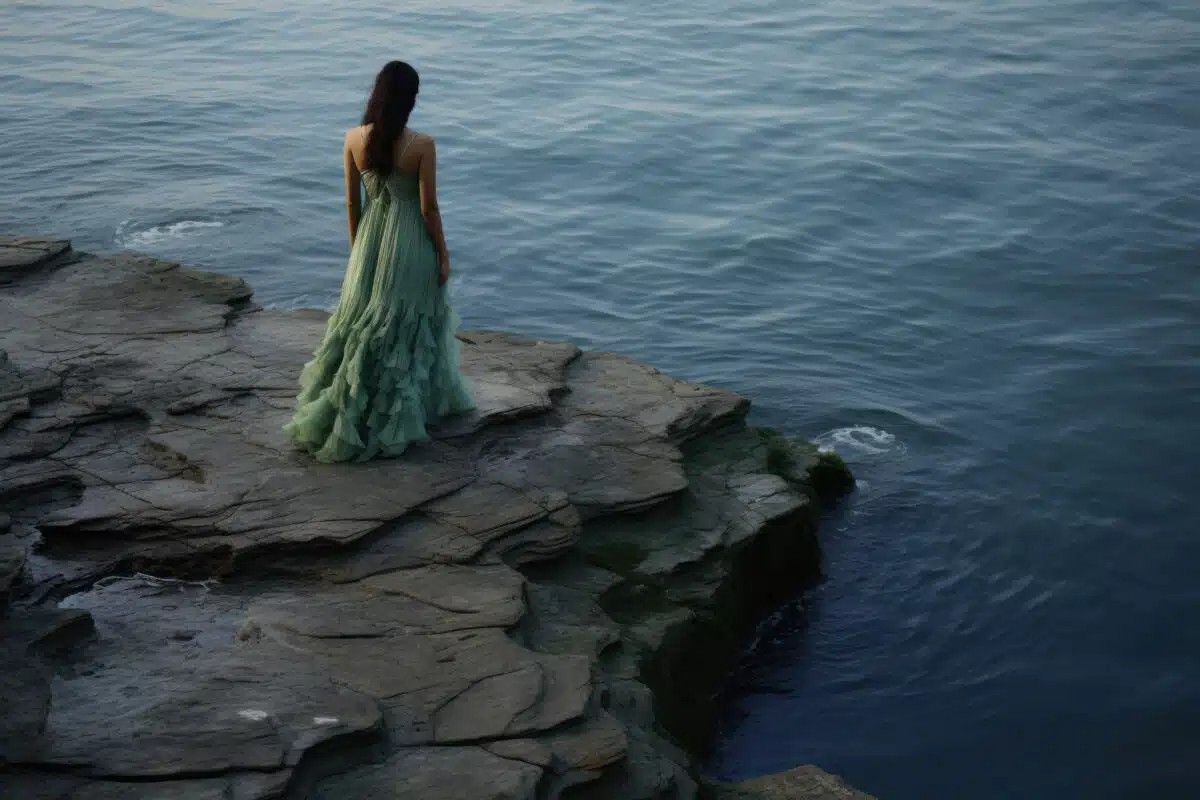
“The Lady’s First Song” by William Butler Yeats
I turn round
Like a dumb beast in a show.
Neither know what I am
Nor where I go,
My language beaten
Into one name;
I am in love
And that is my shame.
What hurts the soul
My soul adores,
No better than a beast
Upon all fours.
“The Sorrow Of Love” by William Butler Yeats
The brawling of a sparrow in the eaves
The brilliant moon and all the milky sky,
And all that famous harmony of leaves,
Had blotted out man’s image and his cry.
A girl arose that had red mournful lips
And seemed the greatness of the world in tears,
Doomed like Odysseus and the laboring ships
And proud as Priam murdered with his peers,
Arose, and on the instant clamorous eaves,
A climbing moon upon an empty sky,
And all that lamentation leaves,
Could but compose man’s image and his cry.
“To A Young Girl” by William Butler Yeats
My dear, my dear, I know
More than another
What makes your heart beat so;
Not even your own mother
Can know it as I know,
Who broke my heart for her
When the wild thought,
That she denies
And has forgot,
Set all her blood astir
And glittered in her eyes.

“His Dream” by William Butler Yeats
I swayed upon the gaudy stern
The butt end of a steering oar,
And everywhere that I could turn
Men ran upon the shore.
And though I would have hushed the crowd
There was no mother’s son but said,
‘What is the figure in a shroud
Upon a gaudy bed?’
And fishes bubbling to the brim
Cried out upon that thing beneath,
It had such dignity of limb,
By the sweet name of Death.
Though I’d my finger on my lip,
What could I but take up the song?
And fish and crowd and gaudy ship
Cried out the whole night long,
Crying amid the glittering sea,
Naming it with ecstatic breath,
Because it had such dignity
By the sweet name of Death.
“To The Rose Upon The Rood Of Time” by William Butler Yeats
Red Rose, proud Rose, sad Rose of all my days!
Come near me, while I sing the ancient ways:
Cuchulain battling with the bitter tide;
The Druid, gray, wood-nurtured, quiet-eyed,
Who cast round Fergus dreams, and ruin untold;
And thine own sadness, whereof stars, grown old
In dancing silver sandalled on the sea,
Sing in their high and lonely melody.
Come near, that no more blinded by man’s fate,
I find under the boughs of love and hate,
In all poor foolish things that live a day,
Eternal beauty wandering on her way.
Come near, come near, come near—Ah, leave me still
A little space for the rose-breath to fill!
Lest I no more hear common things that crave;
The weak worm hiding down in its small cave,
The field mouse running by me in the grass,
And heavy mortal hopes that toil and pass;
But seek alone to hear the strange things said
By God to the bright hearts of those long dead,
And learn to chaunt a tongue men do not know.
Come near; I would, before my time to go,
Sing of old Eire and the ancient ways:
Red Rose, proud Rose, sad Rose of all my days.
“The White Birds” by William Butler Yeats
I would that we were, my beloved, white birds on the foam of the sea!
We tire of the flame of the meteor, before it can fade and flee;
And the flame of the blue star of twilight, hung low on the rim of the sky,
Has awaked in our hearts, my beloved, a sadness that may not die.
A weariness comes from those dreamers, dew dabbled, the lily and rose;
Ah, dream not of them, my beloved, the flame of the meteor that goes,
Or the flame of the blue star that lingers hung low in the fall of the dew:
For I would we were changed to white birds on the wandering foam: I and you!
I am haunted by numberless islands, and many a Danaan shore,
Where Time would surely forget us, and Sorrow come near us no more;
Soon far from the rose and the lily, and fret of the flames would we be,
Were we only white birds, my beloved, buoyed out on the foam of the sea!
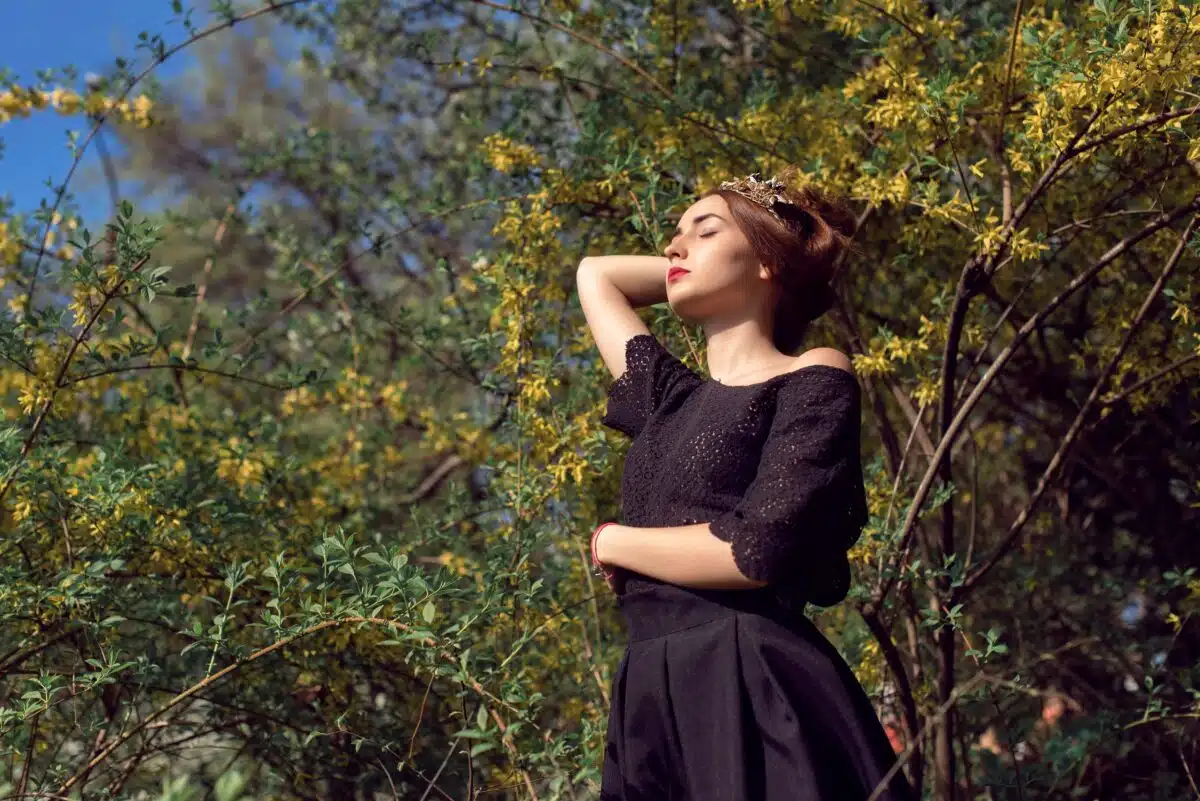
“The Falling Of The Leaves” by William Butler Yeats
Autumn is over the long leaves that love us,
And over the mice in the barley sheaves;
Yellow the leaves of the rowan above us,
And yellow the wet wild-strawberry leaves.
The hour of the waning of love has beset us,
And weary and worn are our sad souls now;
Let us part, ere the season of passion forget us,
With a kiss and a tear on thy drooping brow.
“Down By The Salley Gardens” by William Butler Yeats
Down by the salley gardens my love and I did meet;
She passed the salley gardens with little snow-white feet.
She bid me take love easy, as the leaves grow on the tree;
But I, being young and foolish, with her would not agree.
In a field by the river my love and I did stand,
And on my leaning shoulder she laid her snow-white hand.
She bid me take life easy, as the grass grows on the weirs;
But I was young and foolish, and now am full of tears.
“Ephemera” by William Butler Yeats
“Your eyes that once were never weary of mine
“Are bowed in sorrow under pendulous lids,
“Because our love is waning.”
And then she:
“Although our love is waning, let us stand
“By the lone border of the lake once more,
“Together in that hour of gentleness
“When the poor tired child, Passion, falls asleep:
“How far away the stars seem, and how far
“Is our first kiss, and ah, how old my heart!”
Pensive they paced along the faded leaves,
While slowly he whose hand held hers replied:
“Passion has often worn our wandering hearts.”
The woods were round them, and the yellow leaves
Fell like faint meteors in the gloom, and once
A rabbit old and lame limped down the path;
Autumn was over him: and now they stood
On the lone border of the lake once more:
Turning, he saw that she had thrust dead leaves
Gathered in silence, dewy as her eyes,
In bosom and hair.
“Ah, do not mourn,” he said,
“That we are tired, for other loves await us;
“Hate on and love through unrepining hours.
“Before us lies eternity; our souls
“Are love, and a continual farewell.”
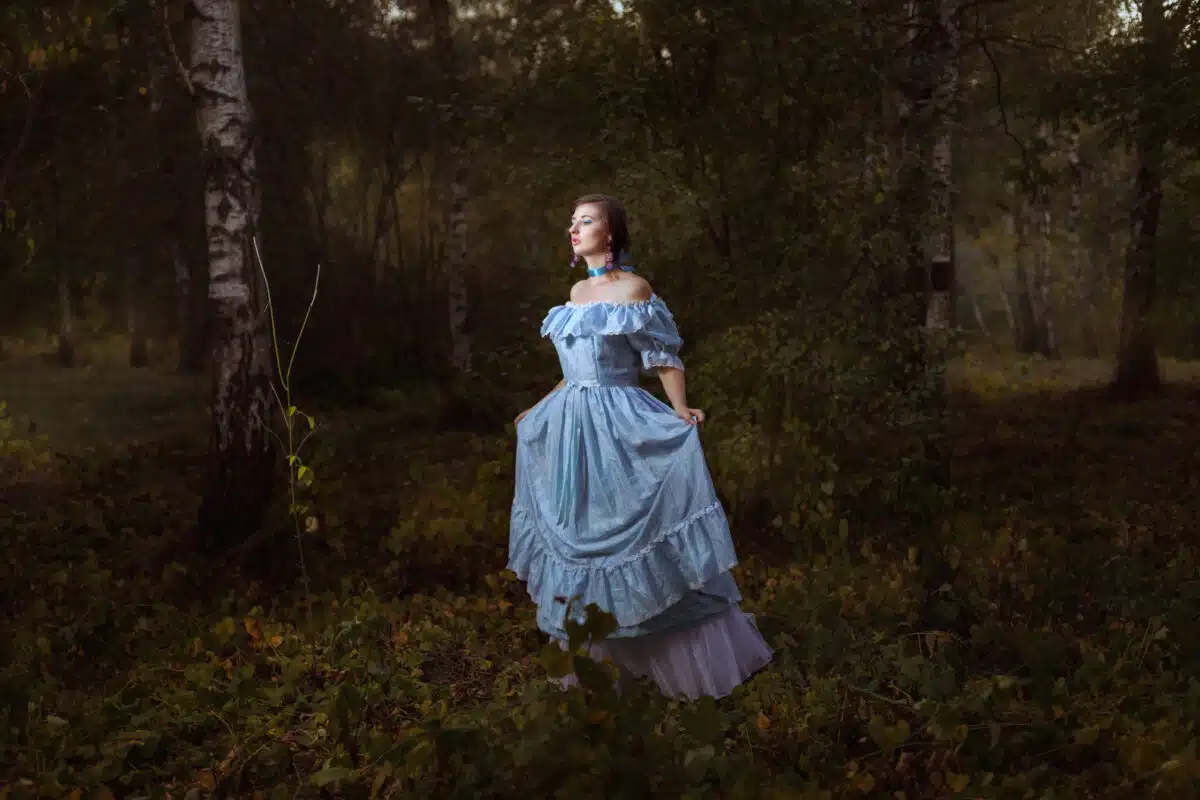
“He Thinks Of Those Who Have Spoken Evil Of His Beloved” by William Butler Yeats
Half close your eyelids, loosen your hair,
And dream about the great and their pride;
They have spoken against you everywhere,
But weigh this song with the great and their pride;
I made it out of a mouthful of air,
Their children’s children shall say they have lied.
“A Man Young And Old: First Love” by William Butler Yeats
Though nurtured like the sailing moon
In beauty’s murderous brood,
She walked awhile and blushed awhile
And on my pathway stood
Until I thought her body bore
A heart of flesh and blood.
But since I laid a hand thereon
And found a heart of stone
I have attempted many things
And not a thing is done,
For every hand is lunatic
That travels on the moon.
She smiled and that transfigured me
And left me but a lout,
Maundering here, and maundering there,
Emptier of thought
Than the heavenly circuit of its stars
When the moon sails out.
